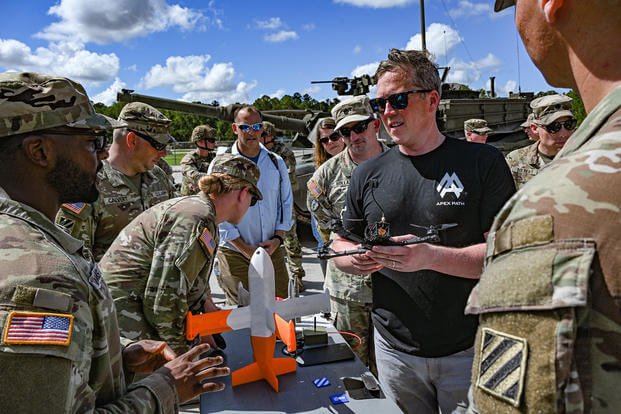Army Secretary Dan Driscoll has ousted his entire slate of civilian advisers in a sweeping move aimed at clearing space for voices from the tech world, as the service doubles down on its push to modernize with a Silicon Valley-style lens.
On Friday, Driscoll notified the 115 members of the Civilian Aides to the Secretary of the Army program, or CASA, an all-volunteer group that serves as the secretary's eyes and ears in communities across the country, that their roles were being terminated.
"Moving forward, the Civilian Aide Program will focus on leveraging civilian expertise in strategic communications, advanced technology, innovation and digital transformation to advise the Army as we build a force capable of dominating the future fight," Driscoll wrote in a letter to all civilian aides Friday.
The move marks a significant break for the century-old program, whose unpaid members have traditionally served to facilitate connections with local businesses, university campuses and state lawmakers, and help boost recruiting efforts and community outreach.
"One of the big losses is I think the decision is short-sighted," said John Phillips, who was an Atlanta-based aide who worked on recruiting initiatives. "The key things lost are community and industry. We're the conduit to get the Army connected to the local community."
It's unclear how Driscoll plans to reinvent the program -- or whether it will remain as large as it has grown in recent years. The shake-up comes as the Army becomes increasingly singular in its focus on emerging technology, drone warfare and deepening ties with Silicon Valley.
Just last month, in a virtually unprecedented move, the service granted direct commissions at the rank of lieutenant colonel to a group of wealthy tech executives from firms including Palantir, Meta and OpenAI.
Meanwhile, behind the scenes, Army planners are quietly trimming down, or outright dismantling, programs seen as peripheral to the service's high-tech future.
While some Pentagon officials and lawmakers have applauded the push toward more rapid innovation, some are quietly worried the Army is becoming too narrowly focused, potentially at the expense of its broader mission, and that recent major decisions about the force are being made without consulting outside of a very cloistered group of officials at the top of the Army hierarchy.
The civilian aide program has long been viewed as uneven, with aides contributing at widely varying levels. Some aides were deeply engaged in local outreach or policy advising, but others were seen as largely symbolic or duplicative, according to officials familiar with the program.
In practice, civilian aides were the Army's means of networking in cities and small towns, often helping coordinate events between the service and external stakeholders, from meetings with local officials and school administrators to attending ribbon cuttings, recruiting fairs and dinners with mayors.
They've also served, in many cases, to figuratively fly the Army's flag -- or represent the service -- in areas far from major military installations.
"It was an honor," said Edward Salo, a history professor at Arkansas State University and former CASA, who worked as a liaison between the National Guard, his university and the Reserve Officers' Training Corps. "It felt good to be able to contribute to help the Army in any way possible."
"I hope that they do redo the program to meet the new Army's needs and not let it sit on the back burner," Salo added. "It's an important tool for the secretary and the Army."
Related: Army ROTC Programs at Dozens of Campuses Are Being Shut Down or Reorganized












